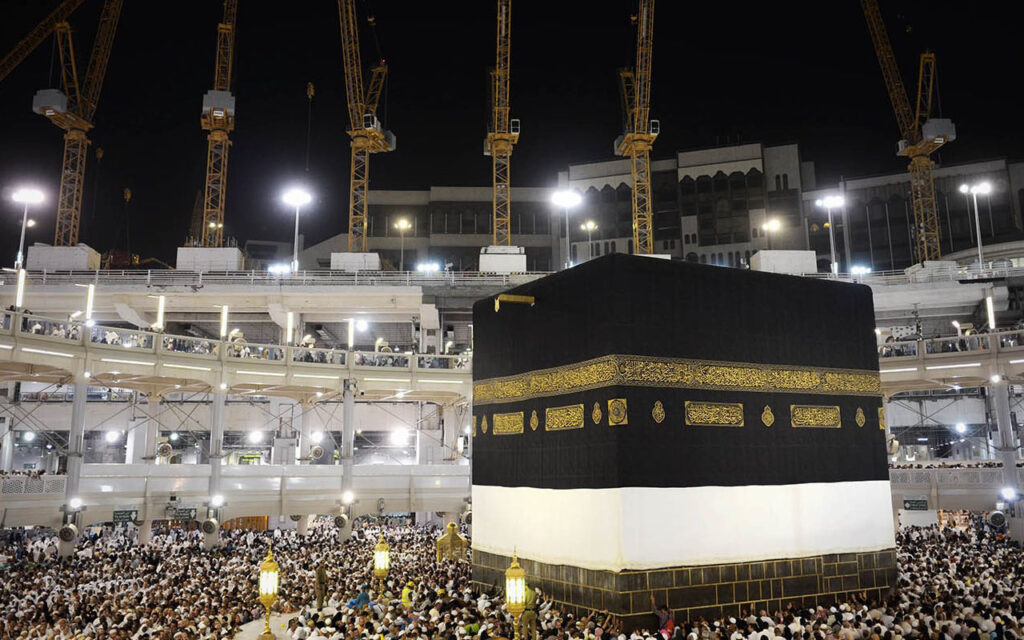
Muslims are enjoined to embark on Sadaqah jariyah (continuous charity) on behalf of their dead loved ones, as the charity act is beneficial to them in the grave.
The charged was made at a special memorial Ramadan lecture organised by the Oyewole family, Islamic scholars and members of the Islamic community. The participants also used the opportunity pray for the late Alhaji Muhammad Saheed Oyewole who died 10 years ago.
At the event, the scholars eulogised, Alhaji Oyewole, for his pioneering efforts in the promotion of Islam, particularly in the area of cleric welfare, in the southwest.
The deceased brother, Alhaji AbdulAfeez Oyewole, who spoke at the 3rd memorial Ramadan lecture praised his late brother’s philanthropist legacy, which he said makes life better for others. He described him as a kind, generous person who is quick to give a helping hand to the less privileged in the society.
“His impact on the family, community and the Muslim ummah will continue to live on. He has done a lot for us. He is a warrior who fought for all of us to excel in life,” he recalled. He said the intention behind the memorial Ramadan lecture is to beseech Allah on his behalf to grant him the reward of the charitable act.
“We are grateful to Alhaji Oyewole, his legacy cannot be written off. He has always been there for us and we will continue to remember him every day.
“Anytime I hear his name, his memory usually flashes back to me. I pray Allah to make accountability easy for him and illuminate his grave,” he prayed.
The founder Abrar Islamic foundation and Abrar Innovation Tech, Imam Raji Adams Adebayo , said in Islam giving charity on behalf of the deceased is encouraged because it will benefit the dead as the reward will get to him or her.
He added the memorial Ramadan lecture was initiated to actualise the aspect of hadith that emphasised continuous charity for the dead and the family chooses the holy month to multiply the rewards.
“The Messenger of Allah (blessings and peace of Allah be upon him) said, When a man dies, all his good deeds come to an end except three, ongoing charity (Sadaqah jariyah, beneficial knowledge, or a righteous son who will pray for him.”
He mentioned numerous methods of doing Sadaqah jariyah. “Apart from organising prayers, there are other ways that one can embark on continuous charity for the dead. You can dig boreholes for any community that needs water on behalf of the dead or sponsor the education of those that are financially handicapped with the intention that the reward should go to the deceased,”he said.
He added that If people can engage in Sadaqah jariyah, the poverty rate will be reduced drastically and with that, the beauty of Islam will blossom.
He prayed for the repose of the soul of Alhaji Oyewole, adding that the deceased contributed both in cash and kind to the dawah work of over 50 per cent of Muslim clerics in the southwest.
The deceased widow, Alhaja Rukayat Oyewole, described his late husband as a good and generous person that loves humanity.
“There is nobody that comes to him with a problem that he will not provide a solution to.
“He was a good husband, father. I do miss him and willalways cry over his demise. She advised widows to stand firm and be strong as nobody can relieve their burden except God.
“I used to hear about widowhood before but now I have experienced it and know how painful and overwhelming widowhood can be. Don’t put your trust in any human but Allah and have a firm belief that it is only Allah that can mitigate challenges and make them tolerable;” she said.
The Naqaabul Ashraaf,sirrul Ajddaad and wazeer Sidiqin Asalaty, Sheikh Hamad Rufai Solaty, emphasised the benefit of engaging in continuous charity on behalf of the dead.
“The rewards of charity and prayers are done for the dead, irrespective of where they are buried it usually get to them in their grave. The prophet (SAW) said we should remember the goodness of our dead, as this is benevolence to them in the grave. He added that organizing remembrance for the dead is not haram and anyone who doesn’t remember his or her death will continue to wallow in abject poverty with lack of rest of mind.” He commended the family of the deceased for organising the programme and for continuously carrying the torch passed to them by their patriarch.
.










